SMUGGLER
NATION

SMUGGLER
NATION

HOW ILLICIT
TRADE MADE
AMERICA
PETER ANDREAS


Oxford University Press is a department of the University of Oxford.
It furthers the Universitys objective of excellence in research, scholarship,
and education by publishing worldwide.Oxford New York
Auckland Cape Town Dar es Salaam Hong Kong Karachi
Kuala Lumpur Madrid Melbourne Mexico City Nairobi
New Delhi Shanghai Taipei TorontoWith offices in
Argentina Austria Brazil Chile Czech Republic France Greece
Guatemala Hungary Italy Japan Poland Portugal Singapore
South Korea Switzerland Thailand Turkey Ukraine VietnamOxford is a registered trademark of Oxford University Press
in the UK and in certain other countries.Published in the United States of America by
Oxford University Press
198 Madison Avenue, New York, NY 10016Peter Andreas 2013All rights reserved. No part of this publication may be reproduced, stored in a
retrieval system, or transmitted, in any form or by any means, without the prior
permission in writing of Oxford University Press, or as expressly permitted by law,
by license, or under terms agreed with the appropriate reproduction rights organization.
Inquiries concerning reproduction outside the scope of the above should be sent to the
Rights Department, Oxford University Press, at the address above.You must not circulate this work in any other form
and you must impose this same condition on any acquirer.Library of Congress Cataloging-in-Publication Data
Andreas, Peter, 1965
Smuggler nation : how illicit trade made America / Peter Andreas.
p. cm.
Includes bibliographical references and index.
ISBN 9780199746880 (hbk. : alk. paper) 1. SmugglingUnited StatesHistory.
2. United StatesCommerceHistory. 3. United StatesForeign economic relations.
4. United StatesEconomic conditions. I. Title.
HJ6690.A74 2013
364.13360973dc23
2012022990ISBN 97801997468801 3 5 7 9 8 6 4 2
Printed in the United States of America
on acid-free paper
For my teachers at Swarthmore and Cornell
CONTENTS


MY INITIAL INTEREST IN illicit tradeand the early inspiration for this bookbegan as a smugglers accomplice. Shortly after graduating from college, I spent four months bumming around Bolivia, Colombia, and Peru. While crossing into Bolivia from Peru by bus, a nice elderly woman sitting next to me sheepishly handed me a large plastic bag filled with rolls of toilet paper and then pleaded with me to put it under my seat. I did what she asked; it seemed harmless enough, even if a bit peculiar. The Bolivian border guards then entered the bus, checking documents and belongings, and proceeded to confiscate large amounts of toilet paper. But they overlooked my hidden stash, perhaps because I did not fit the profile of the typical toilet paper smuggler. Later I learned that the inflated demand for toilet paper in Bolivia was partly due to the cocaine industry. Toilet paper was commonly used to dry and filter coca paste, which was then transported to remote jungle laboratories to be refined into powder cocainemost of which would eventually end up in the noses of American consumers.
During the same trip, I caught a ride on a cargo boatwhich turned out to be a smuggling boattraveling down the Amazon River from Iquitos, Peru, to Leticia, Colombia. Leticia, a bustling town where the borders between Peru, Colombia, and Brazil meet deep in the jungle, owed much of its existence to smuggling. Some of my fellow passengers were pisadores (coca stompers) with distinctive scars on their feet from exposure to the chemicals used to make coca paste. Late at night, before we departed Iquitos, I watched as several dozen drums of chemicals were quietly loaded onto our boat, and then off-loaded in what seemed to be the middle of nowhere before our arrival in Leticia.
I would later find out that many of the chemicals used by the Andean cocaine industry were actually imported from the United States. Leading American chemical companies were exporting vast quantities of precursor chemicals to the region far in excess of what legitimate industry could possibly absorb. Much of it was diverted to the black market and shipped to remote cocaine-processing laboratoriessometimes via Amazonian cargo boats like the one I was on. Even as Americas rapidly escalating war on drugs was trying to stop the northbound flow of cocaine, largely overlooked at the time was the equally important southbound flow of U.S. chemicals needed to cook the coke. I ended up writing a short piece about it for The New Republic . And this, in turn, led to an invitation to testify, alongside Gene Haislip from the Drug Enforcement Administration, before a Senate hearing on chemical diversion and trafficking (with industry lobbyists sitting nervously in the audience). I was hooked on drugs, or more precisely, hooked on trying to figure out the business of drugs and the politics of drug control. And this turned into a career-long interest in illicit economic flows and government campaigns to police them.
As well see in the pages that follow, the drug story is just one particularly prominent and relatively late chapter in the much bigger story of Americas long and intimate relationship with smugglinga clandestine economic practice that we can simply define as bringing in or taking out from one jurisdiction to another without authorization. It is also a far more complex and double-edged relationship than I first imagined, one characterized by intense confrontation but also by accommodation, toleration, and complicity.
In this book, I tell the story of how smugglingand attempts to police ithave made and remade America, from the illicit molasses trade in colonial times to drug trafficking today. I highlight the profound but often overlooked role of clandestine commerce in the nations birth, economic development, geographic expansion, and foreign relations, as well as the role of anti-smuggling initiatives in vastly expanding the policing authority and reach of the federal government. Smuggling, it turns out, has been as much about building up the American state as about subverting it. Through its long interaction with the underworld of smuggling, the United States has emerged not only with a sprawling law enforcement bureaucracyand jails overflowing with convicted drug law offendersbut also as a policing superpower, promoting its favored prohibitions and policing practices to its neighbors and the rest of the world.
Smuggler Nation covers a lot of ground, from pot to porn. It is the first book that re-narrates the story of America and its engagement with the world as a series of highly contentious and consequential battles over illicit trade. But the coverage is also inevitably selective. I make no pretense of being comprehensive. I paint in broad strokes, identifying and making sense of the most important historical episodes, trends, themes, and underlying dynamics.
These are not merely colorful smuggling stories that are otherwise marginal to the overall American historical trajectory. Far from it. For better and for worse, smuggling was an essential ingredient in the very birth and development of America and its transformation into a global power. Only by including the lens of smuggling in looking back at the American experience can we fully answer some crucial questions. For instance, what provoked such intense colonial outrage against the British imperial authorities? How did George Washington manage to defeat the worlds greatest military power? How did America industrialize and catch up to England technologically? Why did the United States fail to annex Canada in the War of 1812? Why did the American Civil War last so long given the Norths lopsided military advantage? Why are the tomatoes we eat so cheap, and why is American agribusiness so globally competitive? Why do we now have such a massive criminal justice system, including the worlds largest prison population? In various ways and to varying degrees, smugglingand the politics of policing itprovides an essential part of the answer to these wide-ranging questions. It is certainly not the only thing that matters. But Smuggler Nation shows how and why we should place it more front and center than in conventional accounts of the American epic.
Next page
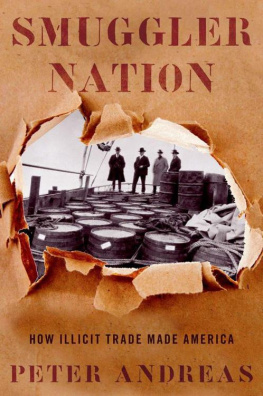
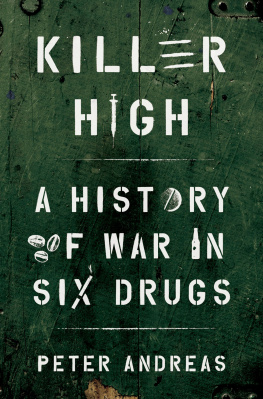
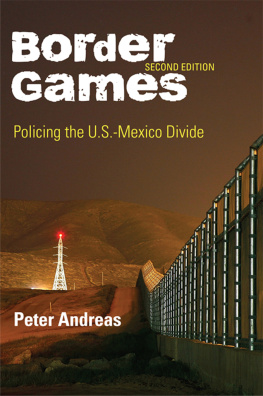
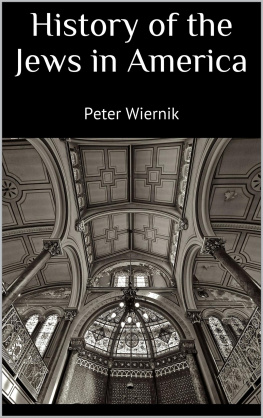


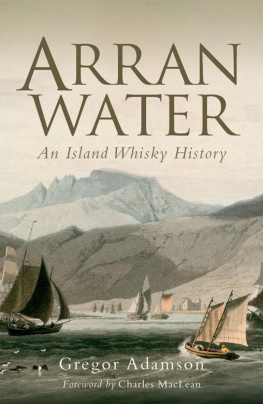
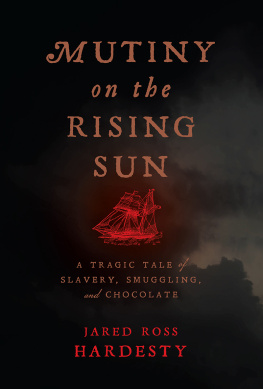
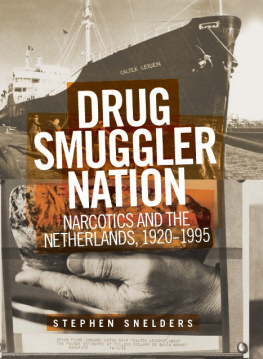
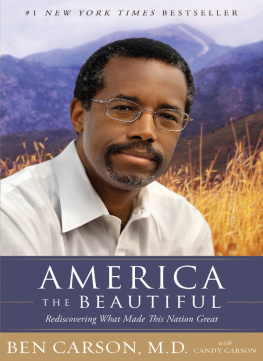

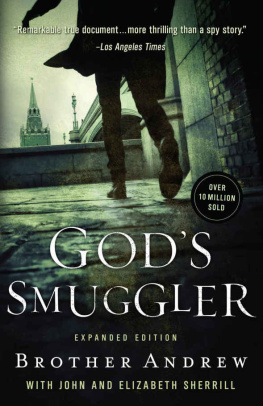


 Oxford University Press is a department of the University of Oxford.
Oxford University Press is a department of the University of Oxford.